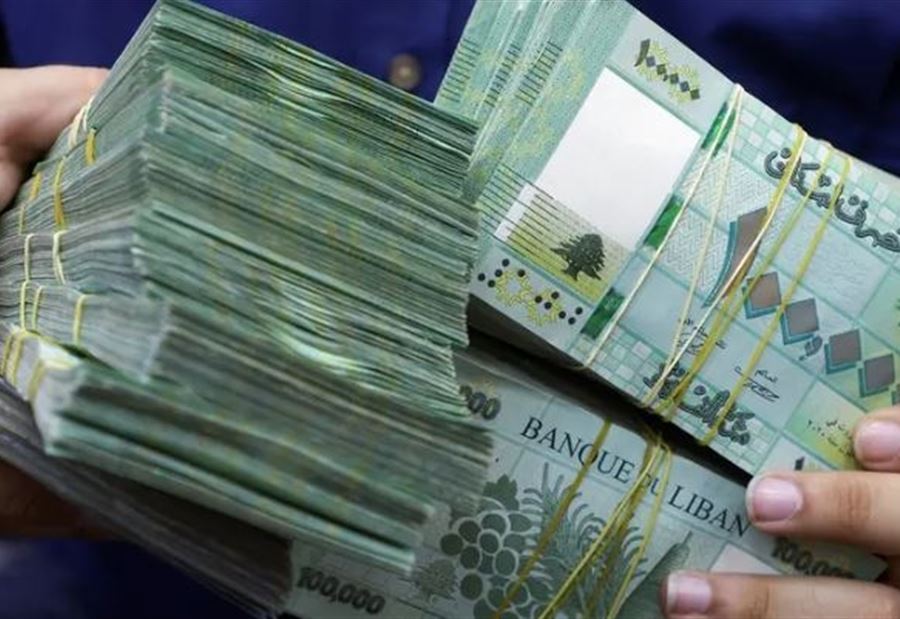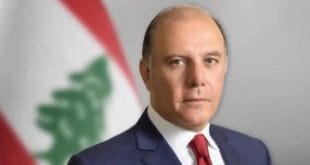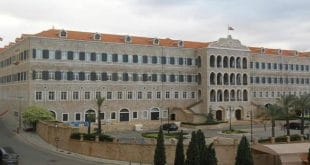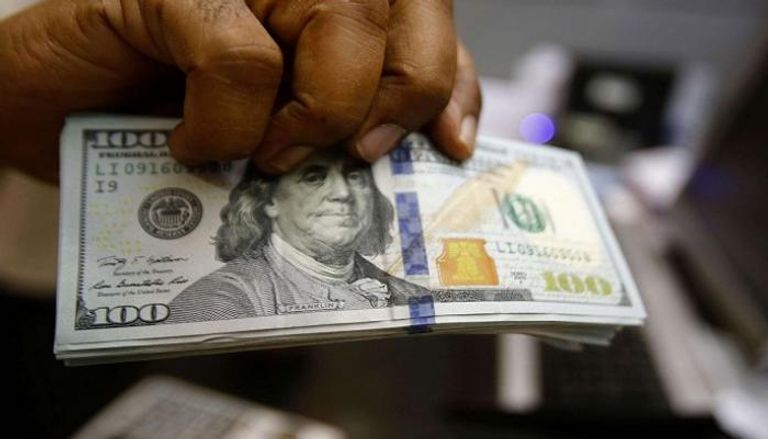حمود: للسير بالإنفاق بعيداً عن هاجس تثبيت سعر الصرف
«في مثل هذه الأزمة التاريخيّة التي تعصف بلبنان، أرضاً وشعباً، على الدولة سلوك «مسار الإنفاق» متخطّية هاجس تثبيت سعر الصرف والتحكّم بحجم الكتلة النقدية…» يقول الرئيس السابق للجنة الرقابة على المصارف الدكتور سمير حمود مشترِطاً «إنفاقاً صحيحاً» كي يكون «سليماً».
كلام حمود جاء في حديث لـ«المركزية» قارئاً فيه موقع الدولة ودورها في ظل الحرب القائمة وما بعدها… ويقول: في لبنان دولة متحللة وحضور دستوري غير مكتمل. أما الناس فبعدما خسرت مقدّراتها المادية، أصيبت مدّخراتها العينيّة سواء بأراضٍ زراعيّة أو مؤسسات اقتصادية أو حتى بأملاك خاصة أو غيرها، بضرر كبير، فأصبح اللبنانيون نازحين في بلدهم، وهنا يصحّ قول الشاعر «أشقى شعوب الأرض شعبٌ في مواطنه شقيّ»… إنها الخسارة الكبرى!
وعما يمكن أن تقوم به الدولة في هذه الحال، يرى حمود أن «الدولة غير مُدرِكة لعواقب ما يحصل»، ويجزم أن «أحداً لا يطلب منها القيام بأي مبادرة بلغة اقتصادية أو مالية أو نقدية على الإطلاق، إنما ما يحدث حالياً يمكن أن يترك انعكاسات مُكلفة جداً، إن لم يتم تداركها سريعاً»، ويقول: الدولة اللبنانية غير مُدرِكة أن في الأزمات الكبيرة ولا سيما في الأزمة الراهنة التي نعيشها حيث الشعب اللبناني نازح في بلده، عليها استخدام الأداة الأولى لمعالجة هذه الأزمة وهي سلوك منحى الإنفاق.
إذ لا تستطيع الدولة أن تنأى بنفسها عن الإنفاق، فوزارة المال لديها أموال في مصرف لبنان، بعيداً عن هاجس تثبيت سعر الصرف والتحكّم بحجم الكتلة النقدية، إنما عليها أن تفهم تمام الفَهم أن في مثل هذه الأزمة يُفترَض بها الإسراع أولاً إلى وضع خطة للإنفاق شرط أن يكون الإنفاق صحيحاً لا أن يكون فرصة لاستفادة البعض وفساد البعض الآخر، إنما يجب أن يكون إنفاقاً يعالج أزمة النازحين»، معتبراً أن «ترك الأخيرة فالتة على مشاربها بدون أي معالجة تحت مفهوم ضبط الإنفاق للحفاظ على استقرار سعر الصرف وحجم الكتلة النقدية، سيؤدي حتماً إلى فلتان اجتماعي ولو بعد حين… وهذا الفلتان ستكون كلفته أكبر بكثير من حجم الإنفاق المطلوب اليوم، ومن تدهور العملة الوطنية».
… «ستنتهي الحرب» يقول حمود، «عندها سنكون أمام تحدٍّ سياسي– دستوري– فاقتصادي»، ويوضح من الناحية الاقتصادية أنه «لا يمكن البحث عن التوجّه الاقتصادي ما لم يعمل لبنان على تحديد هويّته في المرحلة الجديدة، وأن تكون موحّدة وأن يحدّد دوره في المنطقة والعالم»، ويشدد على أنه «لا يمكن لأي دولة التحدث في الاقتصاد ما لم يكن لها هويّة موحّدة ودور اقتصادي تحدّده سياستها المعتمدة. إذ يعلم الجميع أن للبنان اليوم هويّتَين على الأقل! إذاً، يجب أن تكون له هويّة ودور اقتصادي محدَّدَين، عندها نفكّر في الأدوات الاقتصادية التي ترتكز أيضاً على قاعدتَين أو معادلتَين:
– الأولى: لا يمكن أن يكون للبنان اقتصاد أو قطاع خاص سليم، إن لم يكن لديه قطاع عام سليم… القطاع العام لا يُترجَم فقط في الإنفاق الحكومي والرسمي بل في وجوب أن يكون بكل دوائره وقطاعاته سليماً: بدءاً من التعليم مروراً بالمواصلات والكهرباء والاتصالات والطرقات وصولاً إلى كل ما هنالك من إدارات ودوائر للدولة تعمل على أن يكون القطاع العام سليماً.
«بدون قطاع عام سليم لا يحلم أحد بنمو اقتصادي، حتى لو كان المحرِّك الاقتصادي هو القطاع الخاص» وفق حمود «لا قطاع خاصاً بدون قطاع عام سليم وهذا ما يحصل في أكثر البلدان رأسمالية واقتصاد حرّ».
– الثانية: لا يمكن أن يكون هناك اقتصاد صحيح إلا بوجود قطاع مصرفي صحيح.. فالتحدّي المقبل قد يؤدّي إلى استفاقة اللبنانيين بعد 50 عاماً من الحروب، على أنه يجب أن يكون لنا هويّة وقطاع عام وقطاع مصرفي سَليمَين.
ويرى هنا، أن «بهاتين المعادلتين قد تكمن إيجابية المرحلة المقبلة التي لا يمكن الانطلاق فيها بكل هذه المعطيات، إلا بإكمال الشكل الدستوري للبنان بدءاً بانتخاب رئيس للجمهورية صاحب رؤية ونظيف الكَف وأميناً على حماية الدستور والبلاد، وتعيين حكومة بكل ما للكلمة من معنى: مستقلة، نظيفة، كفوءة… ما يؤدي إلى الاستقرار السياسي والدستوري كي تستطيع البلاد السير قدماً نحو النمو والازدهار وتحقيق ناتج قومي لا يقل عن 200 مليار دولار».
… «إذا توفّر كل ذلك، فلا خوف على لبنان إطلاقاً!» يختم حمود.
بالتعاون مع «المركزية»
المصدر: ميريام بلعة – اللواء
Hamoud: Moving Forward with Spending Beyond the Exchange Rate Stabilization Concern
In the midst of Lebanon's historical crisis, the former head of the Banking Control Commission, Dr. Samir Hamoud, emphasizes that the state must adopt a spending approach that transcends concerns over stabilizing the exchange rate and managing the cash supply. He insists that any spending must be “correct” to be effective.
In an interview with “Al-Makaziah,” Hamoud analyzed the role of the state amidst the ongoing war and its aftermath. He pointed out that Lebanon is facing a disintegrating state with an incomplete constitutional presence. The Lebanese people, having lost their financial resources, are now facing significant damage to their tangible assets, such as agricultural land, economic institutions, and private properties, making them displaced within their own country. He poignantly referenced a poet's words, “The most unfortunate people are those who are miserable in their own homeland,” highlighting the severity of the situation.
The State's Response and Economic Outlook
Hamoud critiques the government's unawareness of the consequences of the current crisis, stating that no one expects it to take any initiative in economic or financial terms. He warns that the current circumstances could lead to costly repercussions if not addressed quickly. He stresses the importance of spending, stating, “The Lebanese state cannot detach itself from spending, as the Ministry of Finance has funds in the Central Bank.”
He argues that the government must quickly establish a spending plan that addresses the crisis effectively. He cautions that any uncontrolled spending without proper oversight could lead to significant social unrest, which would cost far more than the current expenditures required to stabilize the economy.
The Path After War
Hamoud asserts, “The war will end,” but warns that Lebanon will face political, constitutional, and economic challenges thereafter. He argues that Lebanon cannot discuss economic direction without first determining its identity in the new phase, which must be unified and clearly defined regarding its role in the region and the world.
He stresses that no country can effectively manage its economy without a coherent identity and defined economic role. Presently, Lebanon is seen to possess at least two identities, necessitating a unified economic identity and role before the country can effectively strategize its economic tools.
Essential Economic Equations
Hamoud outlines two critical equations for Lebanon's economic recovery:
-
Public Sector Health: A sound economy or private sector cannot exist without a healthy public sector. This includes efficient governmental operations across various sectors, including education, transportation, electricity, communications, and infrastructure. Without a functional public sector, economic growth is unattainable, even if the private sector is strong.
-
Banking Sector Integrity: A functioning economy relies on a stable banking sector. Hamoud posits that the forthcoming challenge may awaken the Lebanese people after decades of conflict, emphasizing the necessity of a coherent identity and a robust public and banking sector.
He believes these two elements hold the key to Lebanon's potential future progress, which requires restoring constitutional order by electing a visionary and principled president and forming a capable and clean government. This stability is essential for Lebanon to advance toward growth and prosperity, with a potential national income reaching $200 billion.
Hamoud concludes optimistically, stating, “If all of this is achieved, there is no fear for Lebanon at all!”
Translated by economyscopes team
 سكوبات عالمية إقتصادية – EconomyScopes إجعل موقعنا خيارك ومصدرك الأنسب للأخبار الإقتصادية المحلية والعربية والعالمية على أنواعها بالإضافة الى نشر مجموعة لا بأس بها من فرص العمل في لبنان والشرق الأوسط والعالم
سكوبات عالمية إقتصادية – EconomyScopes إجعل موقعنا خيارك ومصدرك الأنسب للأخبار الإقتصادية المحلية والعربية والعالمية على أنواعها بالإضافة الى نشر مجموعة لا بأس بها من فرص العمل في لبنان والشرق الأوسط والعالم




